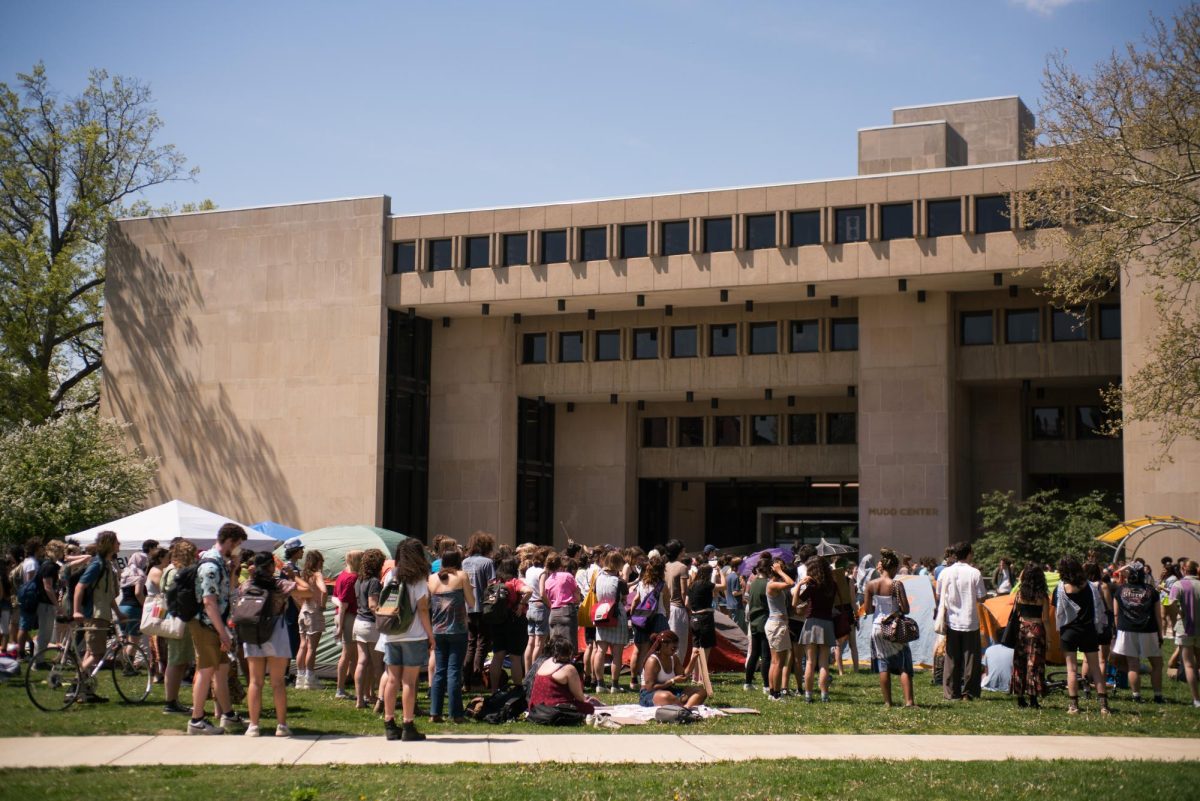As an “income-eligible” student at Oberlin, I’m aware that my experiences surrounding higher education differ drastically from many of my peers. I view college as absolutely necessary and as something that will determine my future unlike any decision I’ve made before. I was encouraged to attend college by family members who didn’t get to, and they instilled in me a belief that college — and Oberlin specifically — would be a ticket to upward social mobility. I am lucky to attend such a prestigious college for such little cost, but I often worry that the philosophies and selling points of liberal arts education don’t align with the realities of many low- and middle-income students.
As students here, we often hear that even the name Oberlin will open doors for you: it makes it easier to get interviews, work at big companies, and land jobs right out of college. However, I believe that there is more at play than that. It’s no secret that many Oberlin students come from wealthy families. In its 2020–21 admissions year, the College ranked very last for Pell Grants given to first-years among the most selective colleges in the country. Those who are low-income might not necessarily benefit from an Oberlin education; data from 2017 found that only 1.2 percent of Oberlin students from poor families became rich in adulthood. Obviously, your class status makes a difference in how beneficial Oberlin is to you.
Privilege and difference in socioeconomic status play a major role in how different people view college and life post-graduation. I grew up believing that college was simply an exchange of time and money for knowledge and, ultimately, a degree. I’ve since realized that this is an oversimplification, but the tangible reward of a degree at the end of four years is still ingrained in my mind — as it should be. A degree is seen as key to landing a higher-paying job and things otherwise unattainable. I want to put forth time and effort into something that is significant to me and will help me to have a successful career. Until recently, I thought this was everyone’s objective when attending college.
I am fortunate to be a first generation student whose parents encouraged me in my decision to attend college. When I talk to my parents about school, conversations always circle back to practicality and applying whatever degree I earn to my future profession. For example, when I — briefly — considered majoring in Musical Studies, they feared that I would struggle to find work. I find myself having “reality checks” with every decision I make in college: even as a first-year student, I’m transfixed by my future and fear that, no matter what I do or major in, it won’t be enough to sustain myself in the “real world.”
In my experience, people who come from wealthier backgrounds do not view higher education in the same way. However, I do not blame individual Obies or their families. The framework for elite liberal arts institutions inherently excludes the less fortunate. Those who already have achieved financial stability or have opportunities lined up can afford not to think about failure or plans immediately after graduation. They have the privilege to make mistakes and take chances, which is something that Oberlin’s mission encourages. However, I can see why “income-eligible” and first-generation students may not feel as secure or comfortable experimenting with this, even within the confines of a school where you’re told that anything is possible. Many of us are already investing in our future in other ways. We are expected to be self-sufficient as soon as possible, put ourselves through college, and pay off our own student loans. To us, college itself is a privilege. To those who are more well-off, it’s about the liberal arts “experience.”
Until I got to campus, I’d never heard the belief that “it doesn’t really matter what your degree is in.” Of course, I see a bit of truth to this from certain angles. A degree can be a “foot in the door” to your first job after graduation; from that point on, it’s your professional experience that counts to future employers. At Oberlin, though, I’ve heard from students and professors alike that many people here end up never using their degrees. To hear this so casually from my passionate educators and friends was a shock — what’s the point in spending so much time and money for it to go to waste?
If employability at the end of four years is not the aim, something else must be. Another phrase heard often at liberal arts institutions is that college is not about the degree, but instead about becoming a well-rounded individual. It’s true that the style of education you get at Oberlin is different from that of a public or state university. I love learning in a liberal arts environment. In a sense, you do actually get what you pay for: small class sizes, attentive and charismatic professors, and access to many resources unheard of at most large universities. However, the return on investment is worrisome to someone without much to fall back on. I see statistics comparing our yearly tuition to students making $31,000 on average after completing their degrees. Many Oberlin grads work jobs that have nothing to do with their field of study or that don’t require a degree at all. This is not inherently wrong, but it makes me wonder about the efficacy of this framework for middle and low-income students.
I have no qualms about being open about my situation and admitting that I would not be here if not for a considerable scholarship. Because of this, I plan to take full advantage of every resource offered to me; professional, educational, and personal development are of the utmost importance to maximize my time here. I can only hope that I come out on the other side having not only experienced liberal arts education, but capitalized on its opportunities.










